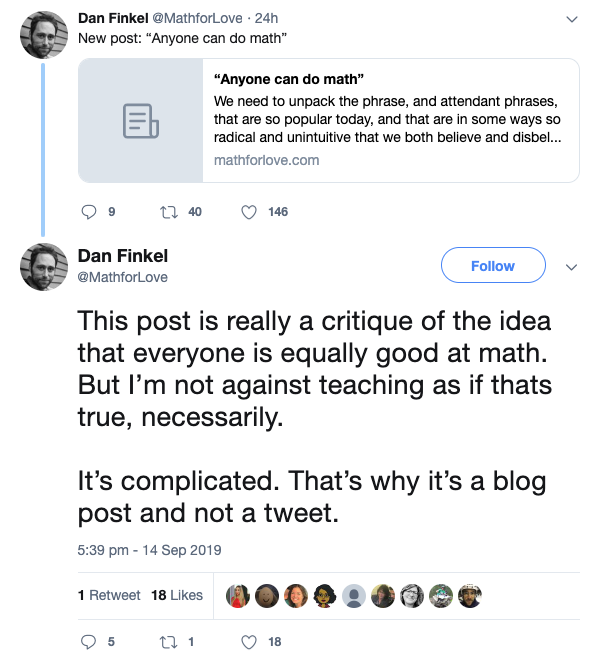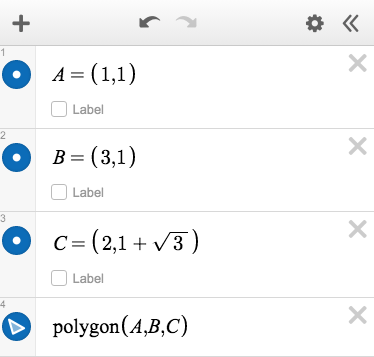|
Not everyone is equally gifted in mathematics.
But there are reasons to teach like everyone could be.
Dan Finkel (@MathforLove), posted what would seem from the outset to be an against-the-grain commentary on the role of growth mindset in mathematics classrooms. His own comment on the tweet in which he posted the link displayed a great intention on being perceived in the right way.

There’s a lot I love about the post and some things that challenge my current thinking, which is another thing I love about the post. Dan’s comment that “For it to be more than an empty platitude, or a blatant falsehood, we have to be precise” spoke to my condition in a profound way. I think in a similar way to how we support our students to make sense of complex ideas, we need to help the teachers we work alongside with to know what is meant by the messages we send about growth mindset.
Something that challenged my thinking was that Dan’s post left me with a feeling that some students will just not fall in love with mathematics. Like a Netflix show I recommend to a friend who doesn’t get past the second episode, I can’t help feeling that, if students would just persist with mathematics, they’d see the beauty I see. I wonder if there’s anything wrong with thinking that.
Some handy tips from the Desmos team
Christopher Danielson (@Trianglemancsd), with the help of Sean Sweeney (@SweenWSweens), put together a great post on the Des-blog about a few moves for teachers using the Graphing Calculator and Activity Builder.

The Estimation 180 Podcast is back!
Creator of estimation180.com, Andrew Stadel (@mr_stadel), is back with a brand new episode for the start of the school year kicking off the second season of the Estimation 180 Podcast. In this episode, Andrew talks about his favourite question to gauge student number sense. What I love about the podcast is that the episodes are only twenty minutes long, in which he’s able to succinctly give some extremely valuable insight into asking better questions. His latest episode also features the stars of the show, Annie and Patrick – the Math Minions.
Written by John Rowe, @MrJohnRowe
|